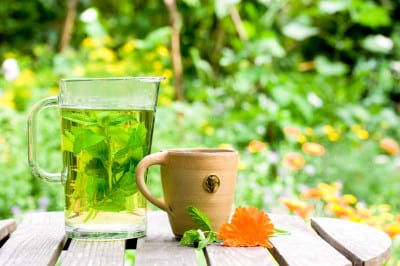IF you find yourself dreading going to bed knowing a long sleepless night awaits, then look no further than the many herbal remedies available.
Herbs encourage a healthy sleep that leaves you fresh and alert in the morning and what’s more you don’t need a prescription for them!
There are a number of herbs that can be used to create a calming and relaxing effect.
One of my favourites ways is to put a small handful of lemon verbena leaves in a mug, infuse with boiling water and drink at bedtime for a mildly sedative effect.
If you are a persistent insomniac and well organised, then a teaspoon of crushed valerian root soaked in cold water for 12-24 hours will also have a soothing and soporific effect.
A number of essential oils can be used in the bath, although NEVER use oils directly into the water, always use oils with a buffer, such as a tablespoon of milk.
The most well known oil to aid sleep is of course lavender, however chamomile and orange blossom are also good and smell wonderful.
Put a tablespoon of dried chamomile and lavender in a muslin bag and let the bath water run to benefit from their soothing vapours.
The FDA in America considers chamomile safe for the treatment of insomnia as the herb has no known side effects.
The German government has also approved valerian, hops and lemon balm for the relief of sleep problems.
Passionflower – not the garden ornamental flower but taken as a tincture in water will also gently induce sleep.
The tincture is readily available from health food shops and online.
Lettuce, though not strictly a herb, has a strong sedative effect and was called ‘sleepwort’ by the Anglo–Saxons.
The milky white latex in the stems was also know as ‘lettuce opium’!
So try a lettuce soup for dinner; or if you don’t mind foliage in your bath a few leaves in a warm bath is also good and particularly effective for soothing fractious babies.
sue@selfsufficiency4u.com
Click here to read more News from The Olive Press.







